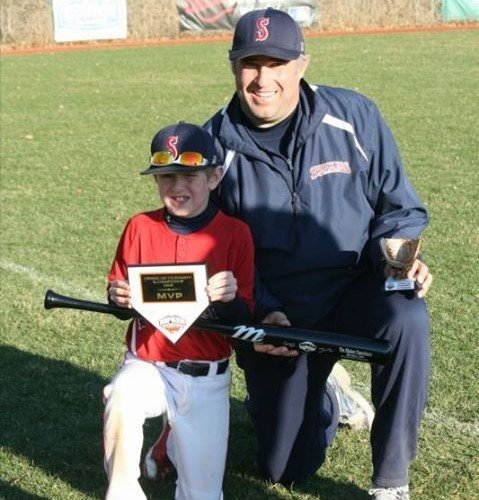At ShoreBread, we place a high value on the importance of community. If you are a regular follower of our online publication, then you know we try to share updates on fundraisers throughout the community, along with any stories that can help those in need. This week, the story hits a little closer to home as we share news of a close friend in need of a new kidney.
Local Craig Lynch reluctantly opened up recently to seek help from the local community to find a kidney donor. Lynch has been battling polycystic kidney disease for several years, a disease that has unfortunately progressed much more quickly than doctors anticipated, leaving Lynch in dire need of a kidney transplant. After failing to find a match amongst relatives, Lynch’s family decided it was time to turn to the community for help. Lynch, who is a father to a 10-year-old son and an 8-year-old daughter, is also an active member of the community, works at D3Corp in West Ocean City, and coaches little league baseball.
Lynch’s situation requires that both of his kidneys be removed and be replaced with a healthy kidney from a living donor. As soon as a match is found, doctors can operate and get Lynch back on track to healthy living.
So what exactly is a living donor and how can you become one? For starters, while donor matches are typically found amongst blood relatives, the reality is, anyone can be a match. We spoke with local Dan Taglienti about the donor process – Taglienti donated a kidney to his father, who was suffering from a rare blood disease that was adversely affecting his kidneys and his overall health.
According to Taglienti, the first step is finding out if you are a blood match. In Lynch’s case, a type-O blood type is required. Several other factors are then taken into consideration, including HIV tests, cancer screenings, and MRI’s, to name a few.
“I had made the decision to donate prior to knowing the results [of the screenings],” said Taglienti of his donor experience, who added that while the tests can be time consuming, they are not arduous. “The surgery is surreal, as I didn’t fully comprehend it until they came to wheel me in to surgery. Then I was thinking, this is really happening, and then I woke up and it was over,” said Taglienti. While the process of recovery will vary from person to person, Taglienti was in the hospital for three days, with soreness lasting for another week or two.
“I did it for my father, and I don’t have an ounce of regret. It is something that makes a person feel unique if not special,” said Taglienti, adding, “after doing it once, if I knew someone in dire need, I would do it again (of course you can only do it once).”
Taglienti donated his kidney in 1996 and was quick to point out that the body is perfectly capable of operating on one kidney, adding “I live a normal life with no food or drink restrictions.” Taglienti was also quick to point out that as is the case with any surgery, it is certainly no walk in the park. However for him, the benefits well outweighed the risks. “With any surgery there can be problems when you are operated on, but for the people who are suffering or have the looming prognosis of dialysis, this is a situation that can be reversed. If you know a friend or loved one, take a shot, see if you are a match, and maybe join the special fraternity of being a living organ donor.”
For Lynch, the hope is to get a healthy kidney before having to resort to dialysis. His best chance for a happy and healthy life is to receive a healthy kidney from a living donor.
If you are interested in being a living donor, the first step is finding out if you are blood compatible. Lynch needs someone with an “O” blood type. If you are unsure, you can check with the Blood Bank of Delmarva (if you donated), your doctor, or you can order a home test kit for $11 by clicking here.
Next, fill out the application, which can be found by clicking here.
Finally, think long and hard about how your own life will be affected, but more importantly about the incredible impact that you could have on someone else’s life.
For more on Craig Lynch’s story, read Lynch’s recent interview and story in The Dispatch.









